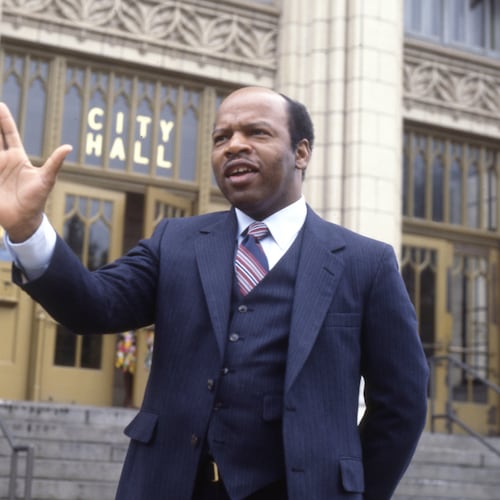On April 12, 1964, Malcolm X delivered his renowned speech “The Ballot or the Bullet,” in which he analyzed the 1960 presidential election between John F. Kennedy and Richard M. Nixon. Speaking to a packed audience at the King Solomon Baptist Church in Detroit, he highlighted that the even split among white voters for Kennedy vs. Nixon made the Black vote a crucial factor, as Black voters largely supported Kennedy and contributed to his narrow victory.
This powerful assertion remains relevant today, as we face another pivotal moment in which the collective strength of the Black vote is again central to the political conversation in the presidential election between Vice President Kamala Harris and former President Donald Trump.
Credit: Rebecca Breyer
Credit: Rebecca Breyer
Since the 1960s, Black people have harnessed their collective voting power to elect a growing number of Black officials at local, state and federal levels. The Black vote has been a reliable force in the coalition that helped elect significant Democratic figures, including Presidents Lyndon B. Johnson, Jimmy Carter, Bill Clinton and Barack Obama. Each of these leaders recognized the importance of the Black electorate, not only as a voting block but also as a vital source of advocacy for policies that uplift Black communities.
The political landscape, however, has shifted dramatically in recent years. In the Trump era, Republicans have strategically sought to erode the solid block of Black support for Democrats by targeting Black men. This strategy involves promoting an economic message that seemingly resonates with some, but it also involves creating an optical illusion of support of Black men by showcasing them behind Trump at campaign rallies as well as using high-profile Black male surrogates such as Sen. Tim Scott, R-S.C., and Rep. Byron Donalds, R-Fla., to create a false sense of solidarity. This tactic appears to be making inroads, as recent polling suggests that approximately 20% of male Black voters now support Trump — an alarming statistic that should give every concerned Harris supporter pause.
At an Oct. 11 rally in Reno, Nevada, Trump declared about Black men, “I love them,” which I believe is an empty expression that contradicts the reality of his policies and their impact on Black communities. Unfortunately, as Rep. Debbie Dingell, D-Mich., aptly pointed out, many Black men think Democrats have taken their support for granted. This sentiment creates fertile ground for Trump’s message, which he crafts to appeal directly to these voters.
In response to this burgeoning rift, President Barack Obama has recently reentered the political fray, urging Black men to rally behind Harris as she seeks the presidency. His pointed remarks about the small number of Black men supporting Trump underscore a critical issue: the lingering hesitance among some to fully embrace a woman as president. Though some critics have labeled Obama’s direct approach as lecturing, I view it as an essential and persuasive call to action.
As a former football player at my alma mater, Morehouse College, I liken Obama’s message to a tough locker room talk from a head coach. Just as a coach motivates his team to recognize their potential and the stakes of the game, Obama is calling on Black men to understand that their vote is pivotal — not only for Harris but for the future of our country. He is imploring them to see beyond surface-level appeals and recognize the broader implications of their choices.
As we enter the final three weeks of this electoral season, the stakes could not be higher. The Black male vote has the potential to tip the balance in swing states, including Georgia, North Carolina, Pennsylvania and Michigan. With current polling showing a virtual tie between Harris and Trump, these states are crucial battlegrounds where every vote counts, and the collective action of Black men can make a significant difference. It is time for Black men to step up and support Harris. She not only embodies the values of progress and equality but also stands as a symbol of the ongoing fight for representation.
The urgency of this moment cannot be overstated. We stand at a crossroads where the choices we make will resonate for generations to come. Supporting Harris is not just about endorsing a Black woman for president; it is about affirming the progress we have made and the future we desire for our communities.
Obama’s call for Black men to rally behind Harris is not merely a suggestion; it is a necessary plea for solidarity and empowerment. As we approach this critical election, let us heed this call and harness our collective power to drive change. The Black male vote is not just a statistic; it is a force that can reshape the political landscape and affirm our commitment to a future where every voice matters.
Together, let us Black men ensure that we are not just spectators in this process but active participants in defining our destiny.
About the Author
Keep Reading
The Latest
Featured



